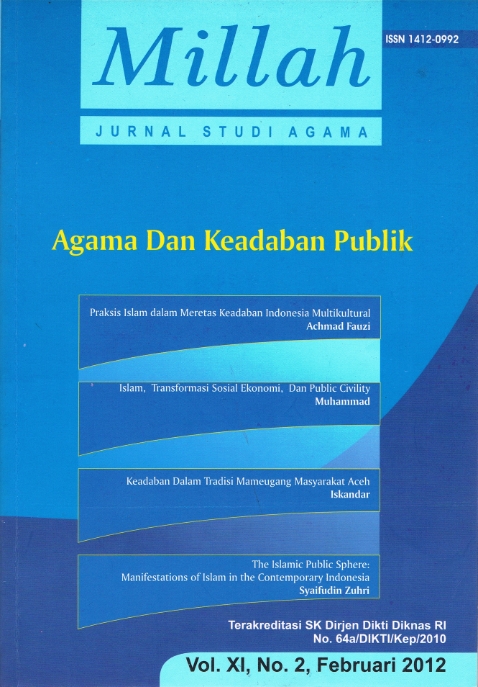Main Article Content
Abstract
In general, Tabot Bengkulu can be developed and incorporated into the true culture (‘urf sahih). Because, it has provided and insight into the cultural-integrative to the process of development of Islamic law, especially relating to the obligations on time to practice prayer, obligation to increase devotion to God, to remember the final day, to remember the creation of human origin, to connect the family relations, to visit the grave and to appreciate the will of the ancestors. However, Tabot culture as human creations –which is still debated the validity of the law by some circles- also had a number of shortcomings that need to be reconstructed, for example, beliefs about the existence of a disaster if not done Tabot ritual and a number of other aspects incorporated into the wrong culture (‘urf fasid).
Article Details
License
Authors retain copyright and grant the journal right of first publication with the work simultaneously licensed under a Creative Commons Attribution (CC-BY-SA) 4.0 License that allows others to share the work with an acknowledgment of the work’s authorship and initial publication in this journal.
How to Cite
M, S. (2016). ‘Urf Dan Budaya Tabot Bengkulu. Millah: Journal of Religious Studies, 11(2), 579–606. https://doi.org/10.20885/millah.volxi.iss2.art12





